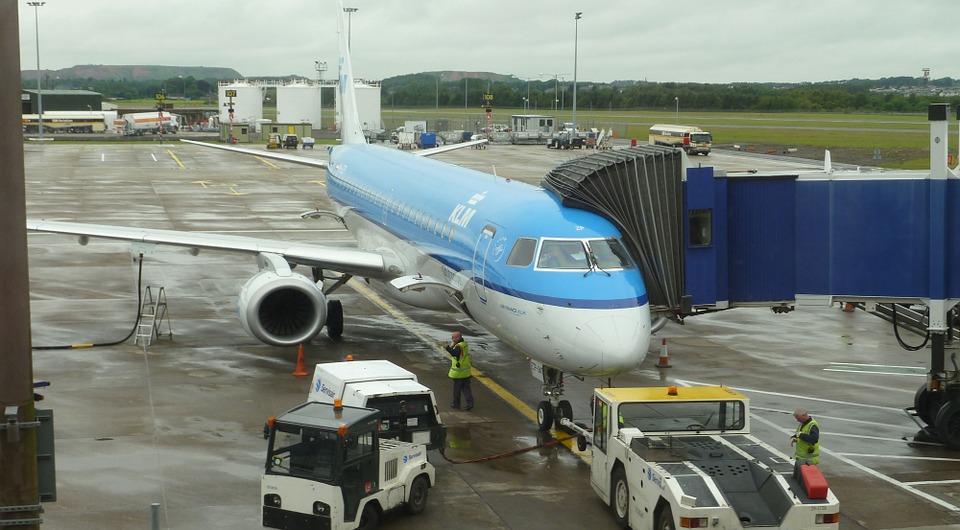Business community enraged as Scottish government scraps air tax cut
Controversial plans to cut the amount of tax paid by passengers flying from Scottish airports have been scrapped by First Minster Nicola Sturgeon in favour of tackling climate change but putting her on a collision course with Scotland’s business leaders.

At the 2016 Holyrood election, the SNP promised a 50 per cent cut in Air Departure Tax (ADT), the proposed devolved version of Air Passenger Duty, by 2021. The party’s long-term goal was to abolish it entirely, at a cost of £300m a year.
The standard tax rate is currently £26 for passengers on short-haul flights and £172 for those on long-haul flights. But critics warned a cut would add to carbon emissions and damage the climate.
The u-turn comes after concerns were raised that keeping the promise would lead to increased greenhouse gas emissions by acting as a catalyst for the number of flights departing from Scotland rising.
This pressure intensified after Ms Sturgeon declared a “climate emergency” at the recent SNP conference and her ADT plan immediately came under renewed scrutiny.
The government has now confirmed that the tax cut will not happen.
Finance Secretary Derek Mackay said reducing air departure tax - which will replace air passenger duty in Scotland - was “no longer compatible” with its climate targets.
Mr Mackay added: “All parts of government and society have a contribution to make to meeting this challenge.
“We continue to support our tourism industry, which is going from strength to strength, and we will work with the sector to develop in a sustainable way.
“We welcome their efforts - and those of the aviation industry - to reduce carbon emissions.”
The boss of Edinburgh Airport accused the Government of lacking leadership and leading airlines and airports “down a path of failed promises for three years”.
Gordon Dewar, chief executive of Edinburgh Airport, said: “We’ve gone from personal commitments to all-out cancellation in the space of just two weeks, which shows just how reactionary this decision is.
He added: “It also raises questions about continued support for our tourism sector when airlines have already walked away from Scotland due to this failure to deliver.”
The airport had previously published a report which predicted halving the departure tax would create almost 4,000 jobs and add £1bn to the Scottish economy.
The report claimed that failing to cut the tax could see Scotland lose out on nearly a million passengers every year.
Derek Provan, chief executive of AGS Airports which owns and manages Aberdeen International and Glasgow airports, described the Scottish government’s decision as a “huge blow for our airports and for Scotland’s connectivity”.
He added: “Over the course of the past year alone, we have seen the withdrawal by airlines of almost 30 routes from Aberdeen and Glasgow airports because of Air Passenger Duty.”
Liz Cameron, Director & Chief Executive, Scottish Chambers of Commerce, said: “The Scottish Government have performed an alarming u-turn on their promise to abolish Air Departure Tax, abandoning their long-term commitment to Scotland’s business community. Despite years of consultation with Scottish industry and detailed technical and economic evaluations that prove this measure would act as an economic enabler and create jobs in Scotland, this decision will have a significant and deleterious impact on the Scottish economy.
“This decision will do nothing to reduce emissions. Instead, it will cut Scotland off at the knees in terms of connectivity and a competitive playing field. Without world-class transport connections, Scotland’s efforts to trade internationally will be hampered at a critical point in time where the need to boost our exports has never been greater.
“Likewise, failing to bring aviation taxes in line with other European regions will diminish the benefits that tourism brings to our economy. Tourism is an important employer in Scotland and its success also creates and maintains jobs in every sector of the economy. This is an additional tax which not only targets businesses who rely on getting their people and goods to customers, but also targets wider consumers and communities in every part of Scotland.
“We welcome the efforts the aviation industry and others have made to dramatically reducing CO2 emissions and this progress is continuing. We applaud the Scottish Government’s commitment to moving to net zero emissions more quickly than the rest of the UK and recognise the urgency of the issues facing the earth’s delicate ecosystem.
“The Committee on Climate Change has outlined how Scotland and her land, for example, forest development, will play a significant and even outsize role if the UK is to prevent climate change. But we must also ensure that we are not economically hamstrung in the race to meet increasingly stringent emissions targets. There needs to be a balance and an effective, qualitative, dialogue with business and the wider community. We would urge all political parties to reconsider and reach a balanced judgement.”
John Cullinane, CIOT tax policy director, said: “Now that Ministers have used today’s statement to refocus their policy priorities, the next objective must be to find a solution to the state aid issues preventing the tax from being implemented and on agreeing the detailed rules under which ADT will operate.
“The Scottish Government’s plans for ADT – regardless of the rates ultimately proposed – have been hampered by a lack of detail over how the tax will operate. Basic questions – such as who will pay what, when they will pay it and who is exempt from the tax –all require answering before the tax is in a position to take off.
“With this information lacking, it has been difficult to say with any certainty what impact the tax would have on the government’s objectives of improving connectivity, promoting economic growth and now, meeting its climate change targets. This hampers the ability of MSPs to properly scrutinise the detail behind the legislation.”






